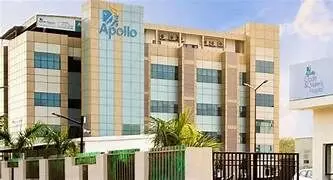Apollo Cancer Centers Introduces CAR-T Therapy for Blood Cancer

Visakhapatnam: Apollo Cancer Centers in Visakhapatnam has introduced CAR-T cell therapy, marking a significant milestone as the first of its kind in Andhra Pradesh. This advanced treatment is designed for blood cancers that have not responded to conventional therapies, offering new hope to patients. CAR-T cell therapy is a form of biological treatment involving the extraction and modification of T-lymphocytes, a type of immune cell. These cells are taken from the patient, genetically re-engineered using a viral vector to express Chimeric Antigen Receptors (CARs) that target specific cancer cell markers, grown to an optimal dose in a lab, and re-infused into the patient to attack and destroy cancer cells.
Globally, CAR-T cell therapies primarily target the CD19 antigen found in certain B-cell Non-Hodgkin’s Lymphomas (B-NHLs) and B-cell Acute Lymphoblastic Leukemias (B-ALL) or BCMA for Multiple Myeloma. Several CD19 and BCMA-targeting CAR-T therapies have been approved in Western countries, with some also available in regions like China and Israel. While most applications currently focus on blood cancers, research is underway to adapt this technology for treating solid tumors and connective tissue cancers.
India's first commercially approved CAR-T cell therapy, NexCAR19™, developed by IIT-Bombay’s spin-off ImmunoACT in collaboration with Tata Memorial Centre, targets CD19 and is approved for treating B-cell lymphomas and leukemias in patients aged 15 and older. Additionally, a CAR-T therapy created by IDIBAPS in partnership with Immuneel Therapeutics in Bengaluru has also been approved for treating B-NHLs.
CAR-T cell treatment comprises three main steps. The first step, leukapheresis, involves collecting white blood cells from the patient at the treatment center, a process that typically takes 2-3 hours as a day-care procedure. The second step is the interim period during which CAR-T cells are manufactured, usually within three weeks. During this phase, the patient might receive bridging therapy to manage disease progression and conditioning chemotherapy five days prior to infusion to prepare the body. The final step is the infusion itself, which is done as an in-patient procedure with a typical hospital stay of 7-15 days to monitor and manage side effects.
The initial side effects of CAR-T cell therapy may include fever, muscle ache, dizziness, breathing difficulty, and fatigue, which can appear within the first few weeks post-infusion and are managed with medications as necessary. Serious complications such as Cytokine Release Syndrome (CRS), Macrophage Activation Syndrome (MAS/HLH), and immune-cell neurotoxicity (ICANS) can occur, characterized by fever, nausea, chills, confusion, and, in rare instances, severe infections or seizures. These side effects generally resolve within the hospital stay.
Apollo Cancer Centers’ partnership with ImmunoACT has made this innovative treatment accessible to patients in Andhra Pradesh, offering them a renewed chance at recovery. While data on the effectiveness of Indian CAR-T cell therapies is still evolving, early results align with global figures where approximately 40% of patients achieve progression-free survival over three years. This development brings optimism to patients with previously limited treatment options, establishing Apollo Cancer Centers, Visakhapatnam as a leader in adopting cutting-edge cancer therapies in India.


